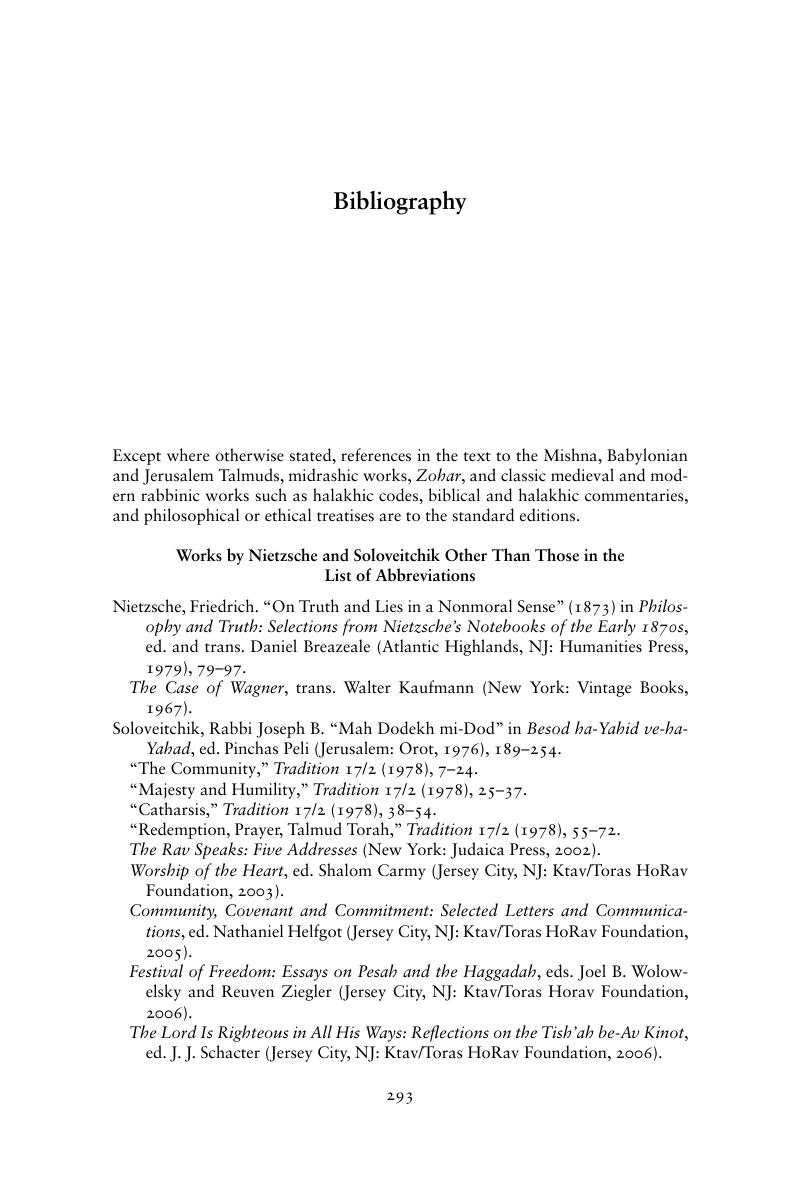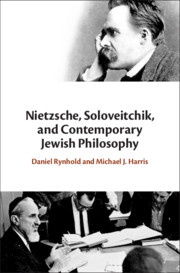Book contents
- Nietzsche, Soloveitchik, and Contemporary Jewish Philosophy
- Nietzsche, Soloveitchik, and Contemporary Jewish Philosophy
- Copyright page
- Dedication
- Contents
- Preface
- Abbreviations
- Introduction
- 1 Nietzsche and Soloveitchik on Knowledge and Truth
- 2 Nietzsche and Soloveitchik on Morality
- 3 Nietzsche and Soloveitchik on Asceticism and the Passions
- 4 Nietzsche and Soloveitchik on Law and Creativity
- 5 Nietzsche and Soloveitchik on Repentance
- 6 Nietzsche and Soloveitchik on Suffering
- 7 Nietzsche and Soloveitchik on Elitism
- Bibliography
- Index
- References
Bibliography
Published online by Cambridge University Press: 08 June 2018
- Nietzsche, Soloveitchik, and Contemporary Jewish Philosophy
- Nietzsche, Soloveitchik, and Contemporary Jewish Philosophy
- Copyright page
- Dedication
- Contents
- Preface
- Abbreviations
- Introduction
- 1 Nietzsche and Soloveitchik on Knowledge and Truth
- 2 Nietzsche and Soloveitchik on Morality
- 3 Nietzsche and Soloveitchik on Asceticism and the Passions
- 4 Nietzsche and Soloveitchik on Law and Creativity
- 5 Nietzsche and Soloveitchik on Repentance
- 6 Nietzsche and Soloveitchik on Suffering
- 7 Nietzsche and Soloveitchik on Elitism
- Bibliography
- Index
- References
Summary

- Type
- Chapter
- Information
- Nietzsche, Soloveitchik, and Contemporary Jewish Philosophy , pp. 293 - 310Publisher: Cambridge University PressPrint publication year: 2018



